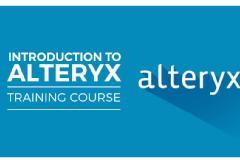-
Introduction to Talend: Gain a solid understanding of the Talend platform, its features, and its role in data integration and ETL processes.
-
Talend Installation and Configuration: Learn how to download, install, and configure Talend software on your machine, ensuring a smooth setup process.
-
Building Talend Jobs: Master the creation of Talend jobs by exploring various components, connectors, and transformations available in Talend.
-
Data Extraction: Explore techniques for extracting data from diverse sources relevant to urban applications, including databases, APIs, flat files, and web services.
-
Data Transformation and Cleansing: Dive into the transformation capabilities of Talend, including data cleansing, filtering, enrichment, and standardization, ensuring data quality for urban analysis.
-
Data Loading and Integration: Learn how to load transformed data into target destinations such as databases, data warehouses, or other systems, ensuring seamless data integration.
-
Handling Complex Data Structures: Discover methods to handle complex data structures commonly found in urban data, such as nested JSON or XML, and efficiently process them in Talend.
-
Error Handling and Logging: Understand how to implement error handling mechanisms and logging strategies in Talend to ensure data integrity and troubleshoot issues effectively.
-
Advanced Talend Features: Explore advanced features of Talend, including job orchestration, parallel processing, parameterization, and scheduling to optimize ETL workflows for urban data.
-
Performance Optimization: Learn best practices and techniques to optimize Talend jobs for enhanced performance, including parallel execution, partitioning, and data caching.
-
Real-World Urban Use Cases: Apply your Talend skills to real-world urban data integration scenarios, working on practical case studies that simulate urban data challenges and solutions.
-
Integration with Urban Analytics Tools: Discover how to integrate Talend with popular urban analytics tools, such as Tableau or R, to perform advanced analysis and visualization on integrated data.
-
Best Practices and Governance: Understand industry best practices for Talend development, versioning, documentation, and governance to ensure scalability and maintainability in urban data projects.
Course Duration: The course is designed to be completed over a period of 8-10 weeks, with approximately 4-6 hours of study per week. However, the duration can be adjusted based on your learning pace and schedule.
Prerequisites:
- Basic understanding of data integration concepts and ETL processes.
- Familiarity with databases and SQL is beneficial but not mandatory.
- No prior experience with Talend is required.
Target Audience:
- Data professionals and analysts involved in urban data integration and ETL processes.
- IT professionals responsible for managing urban data systems and workflows.
- Urban planners and researchers working with large-scale urban datasets.
- Data enthusiasts looking to expand their skills in data integration for urban applications.








